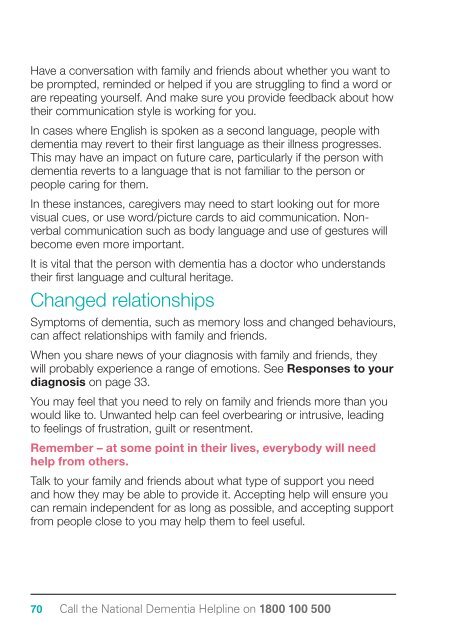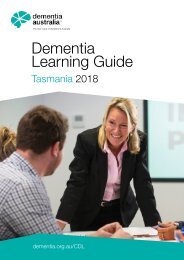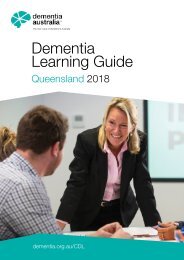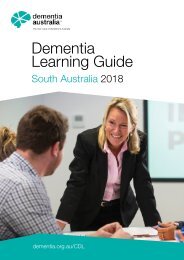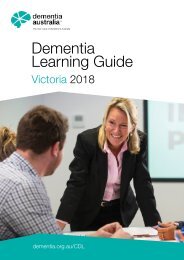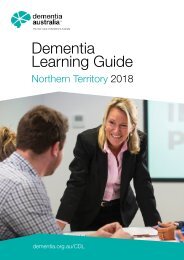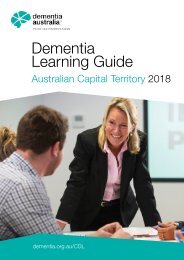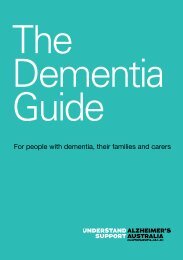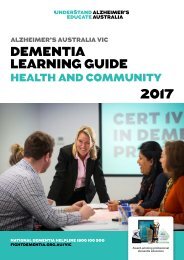Dementia Australia | The Dementia Guide
The Guide will also be used by the family and friends of someone with dementia, as it will contain information for anyone taking on a caring role. It will help people to understand more about dementia and the emotional impact of a diagnosis, the available drug treatments, and support and services that are available. It will include information about living well with dementia and about making plans for the future.
The Guide will also be used by the family and friends of someone with dementia, as it will contain information for anyone taking on a caring role. It will help people to understand more about dementia and the emotional impact of a diagnosis, the available drug treatments, and support and services that are available. It will include information about living well with dementia and about making plans for the future.
You also want an ePaper? Increase the reach of your titles
YUMPU automatically turns print PDFs into web optimized ePapers that Google loves.
Have a conversation with family and friends about whether you want to<br />
be prompted, reminded or helped if you are struggling to find a word or<br />
are repeating yourself. And make sure you provide feedback about how<br />
their communication style is working for you.<br />
In cases where English is spoken as a second language, people with<br />
dementia may revert to their first language as their illness progresses.<br />
This may have an impact on future care, particularly if the person with<br />
dementia reverts to a language that is not familiar to the person or<br />
people caring for them.<br />
In these instances, caregivers may need to start looking out for more<br />
visual cues, or use word/picture cards to aid communication. Nonverbal<br />
communication such as body language and use of gestures will<br />
become even more important.<br />
It is vital that the person with dementia has a doctor who understands<br />
their first language and cultural heritage.<br />
Changed relationships<br />
Symptoms of dementia, such as memory loss and changed behaviours,<br />
can affect relationships with family and friends.<br />
When you share news of your diagnosis with family and friends, they<br />
will probably experience a range of emotions. See Responses to your<br />
diagnosis on page 33.<br />
You may feel that you need to rely on family and friends more than you<br />
would like to. Unwanted help can feel overbearing or intrusive, leading<br />
to feelings of frustration, guilt or resentment.<br />
Remember – at some point in their lives, everybody will need<br />
help from others.<br />
Talk to your family and friends about what type of support you need<br />
and how they may be able to provide it. Accepting help will ensure you<br />
can remain independent for as long as possible, and accepting support<br />
from people close to you may help them to feel useful.<br />
70 Call the National <strong>Dementia</strong> Helpline on 1800 100 500


